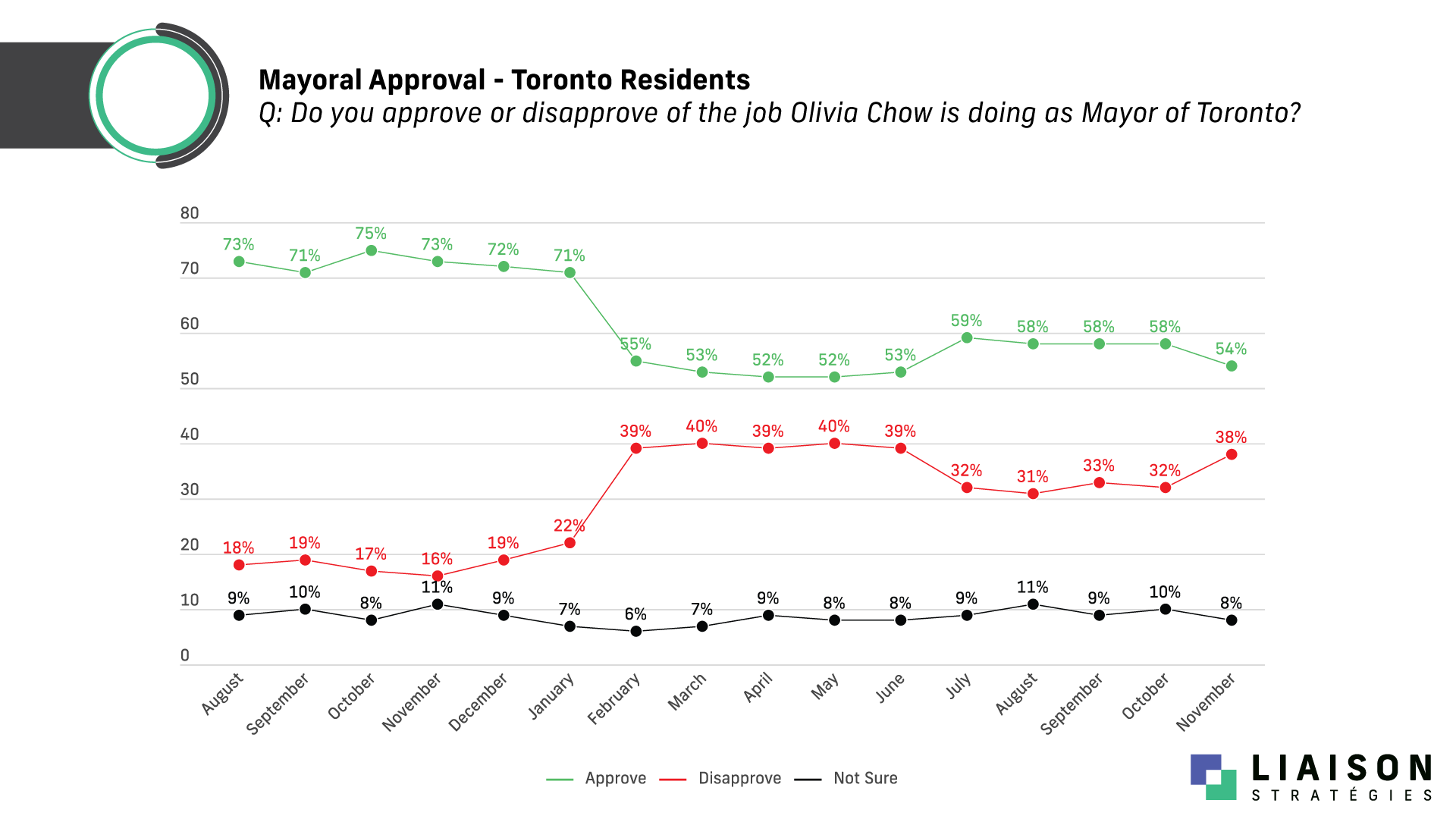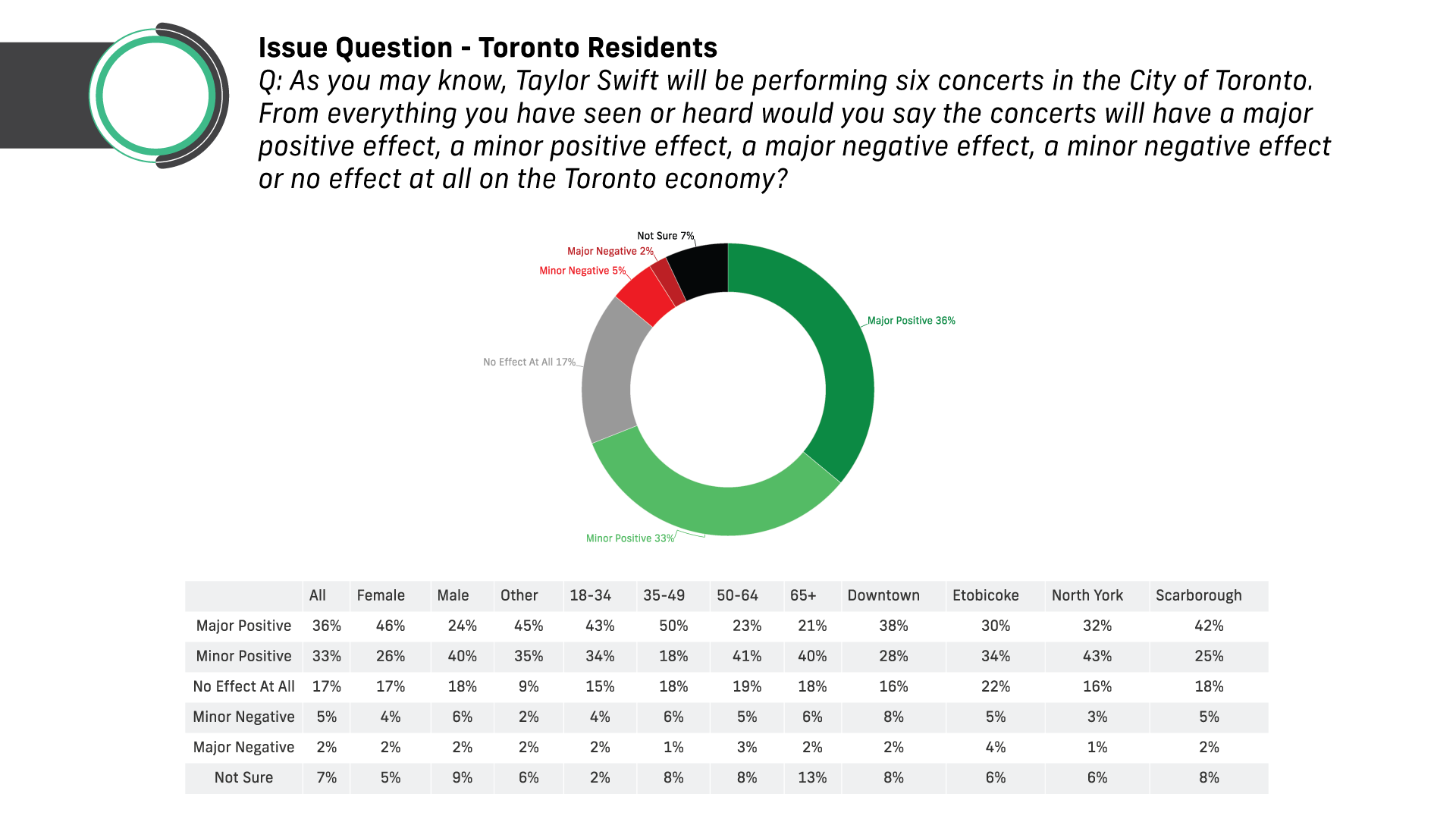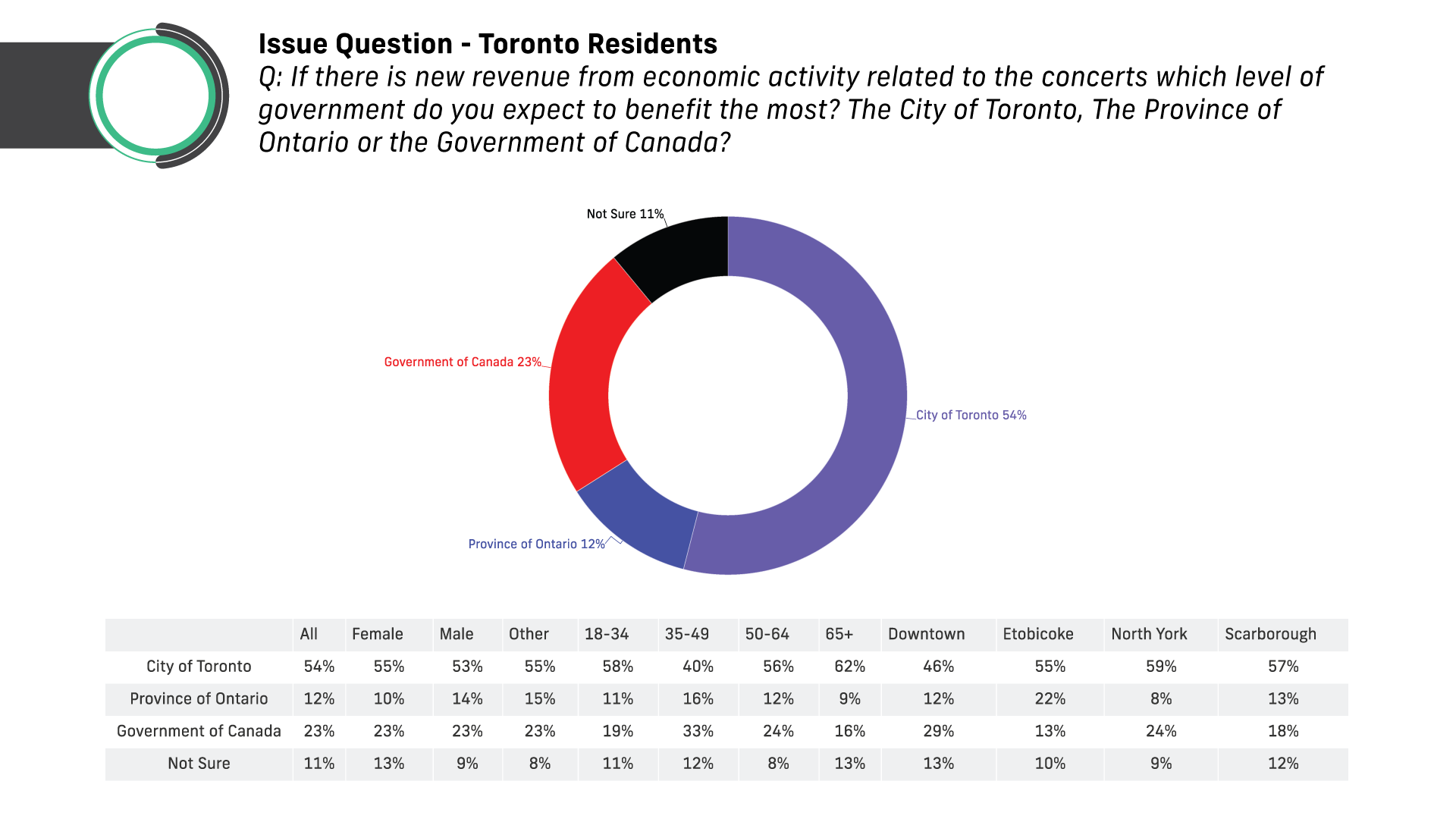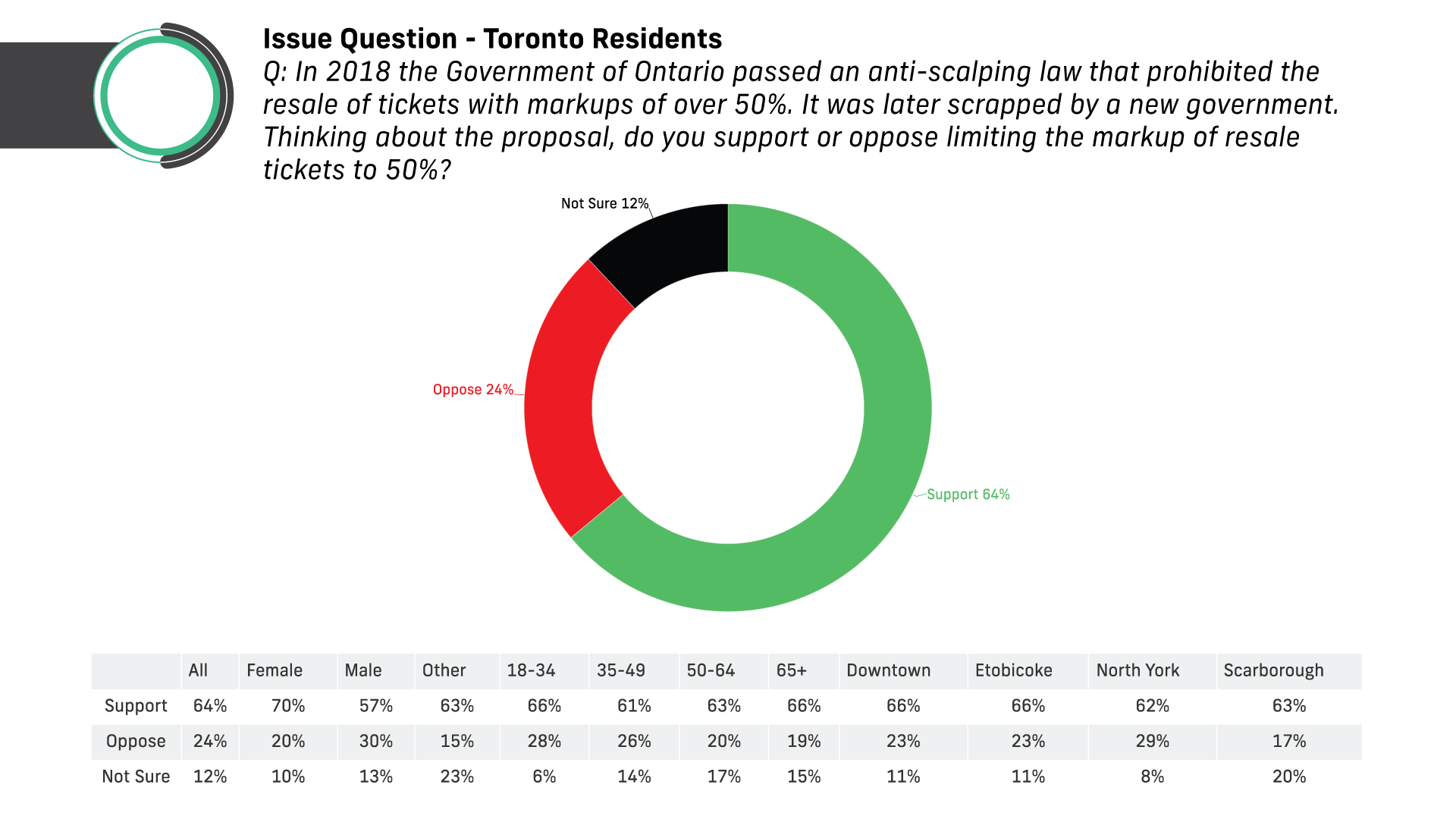Support For Chow Dips; Torontonians Support Anti-Scalping Law

November 13, 2024 (Toronto, ON) – A new Liaison Strategies poll for the National Ethnic Press and Media Council of Canada (NEPMCC) finds Olivia Chow's approval ratings taking a dip while most Torontonians support a 2018 anti-scalping law that was never enacted.
Conducted from November 8-10, 2024, using interactive voice response technology, the poll surveyed 855 Toronto residents. The margin of error for the poll is +/- 3.35%, 19 times out of 20. Liaison is a member of the Canadian Research Insights Council (CRIC).

"Olivia Chow’s net approval rating has dropped sharply from +26 to +16—a full ten-point slide," noted David Valentin, principal at Liaison Strategies. "While her approval held steady at 58% throughout the summer, it’s now fallen to 54%, with disapproval creeping up as undecideds decline. This shift could signal the beginning of a downward trend, though we’ll need more data to confirm. It’s always the trend line, not just one survey, that tells the real story."
"Chow’s strongest support remains downtown, with 61% backing her, while Etobicoke shows the least support at just 31%. Her approval is also notably higher among women (58%) than men (50%)."
"As Taylor Swift prepares to bring her six-show Eras Tour to Toronto, we polled Torontonians on their thoughts about the concerts' impact on the city, particularly in terms of ticketing and economic effects."

"When asked about the economic impact, 36% of respondents believe the concerts will have a major positive effect on Toronto's economy, while 33% expect a minor positive impact. Meanwhile, 17% anticipate no economic effect, and 7% foresee some level of negative impact, either major or minor," continued Valentin.
"Younger respondents and women were the most likely to predict a major economic impact from the concerts. Interestingly, men (17%) and women (18%) were equally likely to believe there would be no impact at all."

"We also asked which level of government respondents thought would benefit the most from any new revenue generated by the concerts. While 54% believed the City of Toronto would see the greatest gain, in reality, the city will benefit the least. Unlike the federal and provincial governments, which will see increased sales tax revenue, the City of Toronto’s revenue will be largely limited to funds from the hotel tax. Meanwhile, 23% of respondents expected the federal government to benefit the most, and 12% thought the Ontario government would see the greatest financial boost."

"Lastly, we gauged support for a 2018 anti-scalping law that was never implemented. The proposed law would have capped ticket resale prices at a 50% markup but was later scrapped by a new government. Today, 64% of Torontonians support this anti-scalping measure, with majority backing across all demographics and regions of the city. 'Though the law was controversial at the time and faced questions about enforceability, it’s clearly a popular idea," concluded Valentin.
-30-
About Liaison Strategies
Liaison Strategies is a national public opinion research firm. With 12 years of experience in Canadian polling, David Valentin, principal, has fielded hundreds of projects at the municipal, provincial and federal levels and appeared across Canadian media to discuss insights. Liaison is a member of the Canadian Research Insights Council (CRIC), Canada’s voice of the research, analytics, and insights profession both domestically and globally.
About the National Ethnic Press and Media Council of Canada
The National Ethnic Press and Media Council of Canada (NEPMCC) is a non-profit organization whose mission is to promote and integrate economic, social and cultural interests of Ethnic communities into the mainstream of Canadian society. NEPMCC represents Canada’s Ethnic Press to the provincial and federal governments and is the major industry association for Canada’s non-official language newspapers, TV, radio and online outlets.